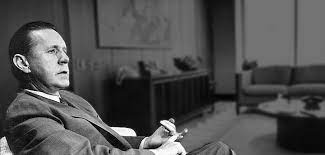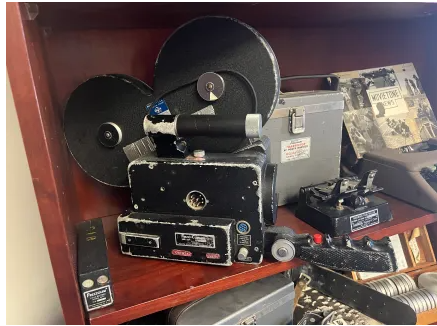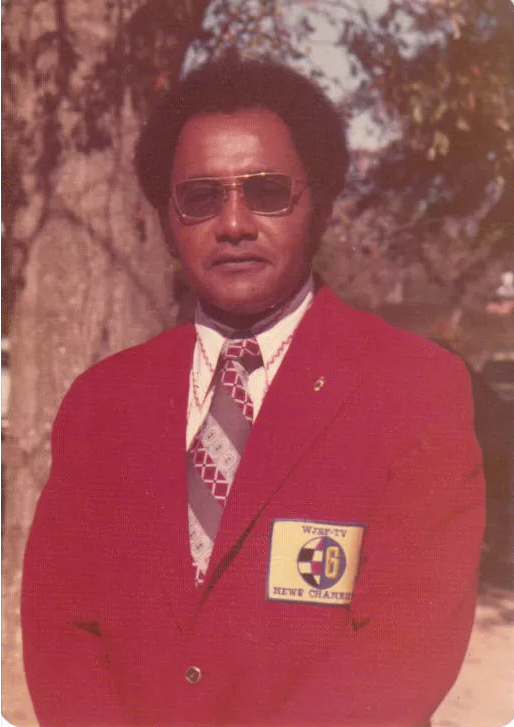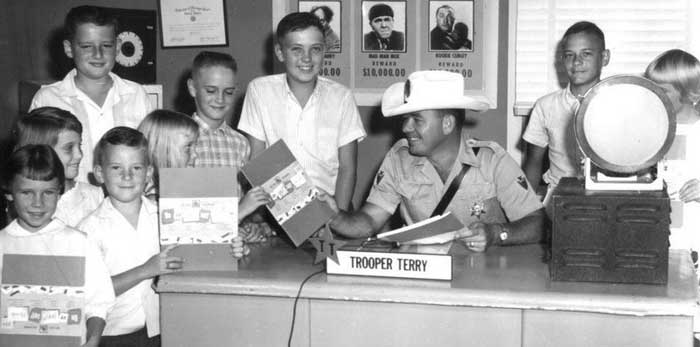On Thanksgiving Day 1953, a switch was thrown, power flowed into a massive transmitter in Beech Island and WJBF Television was born, beginning a legacy that has lasted for 70 years.
WJBF was the brainchild of J. B. Fuqua who had come to Augusta just over a decade earlier to create WGAC radio in 1940. The broadcast and business legend was a self-taught radio engineer and no sooner than the premiere of his radio station, Fuqua began tinkering with the available technology with plans to bring Augusta its first television station.

Fuqua, who died in 2005, recalled that he and his team worked out of an old house on Georgia Avenue where they built and tested equipment.
“I remember there were miles of cords and cables all over the place. We would get so involved in the work that we would lose track of time and my wife would call and say ‘J.B., aren’t you getting hungry? It’s almost midnight!’ Fuqua said.
Once the station went on the air, Fuqua and his team continued refining the nascent technology, which would put WJBF in good standing when the industry moved from black and white to color.
According to Chelsea Mathews and Lauren Kellums, writing in the book, “Augusta’s WGAC: Voice of the Garden City for 70 Years,” the original broadcasts at WJBF were limited to about 25 hours per week.

In those days, early television stations relied on movie newsreels and network feeds for the majority of content. Local television broadcasting was mainly a “fly by the seat of your pants” affair as the advent of videotape was still decades away. Any local footage had to be recorded on the same type of film used for movies, and that film would have to be processed and then edited by hand.
As a result, local television broadcasts were aired completely live.
While Fuqua was known to be a “tough-as-nails” business negotiator and a demanding boss, Kellums and Mathews quote WJBF broadcast legend Jim Davis as stating that: “Fuqua was a taskmaster, yet he respected and cared for all of his employees.”
In an era where men dominated the penthouse corner offices and most women were relegated to the secretarial pool, Fuqua recognized that his own secretary, Winona Warner, was smarter and much more of a “go-getter” than most of the men he employed. When he organized Fuqua Industries, Fuqua promoted Warner over her male colleagues, making her one of the first female chief executives of a Fortune 500 company in the nation.
Fuqua was also extremely progressive when it came to racial issues during a time when Southern Blacks were suffering under legal segregation.
One of the first local programs that Fuqua launched, not long after the station debuted in 1953, was the “Parade of Quartets,” a program that features Black Gospel singers. The Parade of Quartets was an instant hit and remains on the air to this day, making it, according to the POQ website, the longest continuous running program of its kind in the United States.
In 1971, WJBF, under Fuqua’s direction, hired Augusta’s first Black reporter, Frank Thomas, and Thomas would start his position shortly after the race riots that tore downtown Augusta apart.

Despite Thomas’ being fully embraced by the staff and proving himself to be a solid investigative reporter on-air, according to the WJBF website, he did face challenges due to his race. Thomas recalled that the Ku Klux Klan tried to intimidate him by burning a cross; however, both Thomas and Fuqua were undeterred.
Thomas remained a nightly presence on the six and eleven o’clock news for well over a decade.
One of the most popular programs ever to appear on WJBF was the Trooper Terry Show, which was a kids show produced by the then General Manager Terry Sams. The show, which aired from 1962 to 1982, featured a live audience of kids gathered around the Magic Viewing Screen to watch Saturday morning cartoons.

Getting an invitation to appear on the Trooper Terry Show on their birthday was the dream of nearly every Augusta kid.
Fuqua’s corporate policy of creating a family-like work environment remained long after his affiliation with the station ended. Former WJBF news anchor and former mayor of Augusta, Bob Young, has fond memories of working at the station for 14 years.
“It really was run like a family, which is not something you see much in corporate America these days. The management, during my time there, was focused on keeping talented employees and serving the community. It seems that mentality is the same today at WJBF even after 70 years,” Young said.
Pete Michenfelder, the long-time news director for the station in the 1980s and into the 1990s, says he is amazed at how not only the technology has changed, but also viewing habits as well.
“We only did little five-minute blocks in the mornings for local news, and producing the two evening broadcasts was the main focus, because that was when people were viewing their sets. Now, local news starts as early as four or five in the morning and the morning broadcasts have become more important,” Michenfelder said.
WJBF Newschannel 6 is home today to a large stable of reporters along with veterans Mary Morrison and George Eskola. In fact, Morrison has helmed the morning news program since 1988, and she recites every story from memory.
That’s right, Morrison has never used a teleprompter.
…And that is something you may not have known.
Scott Hudson is the Senior Investigative Reporter and Editorial Page Editor for The Augusta Press. Reach him at scott@theaugustapress.com












